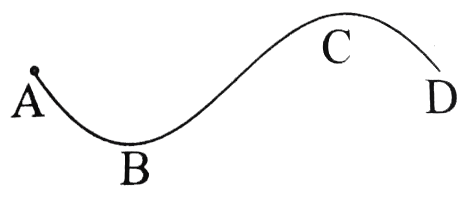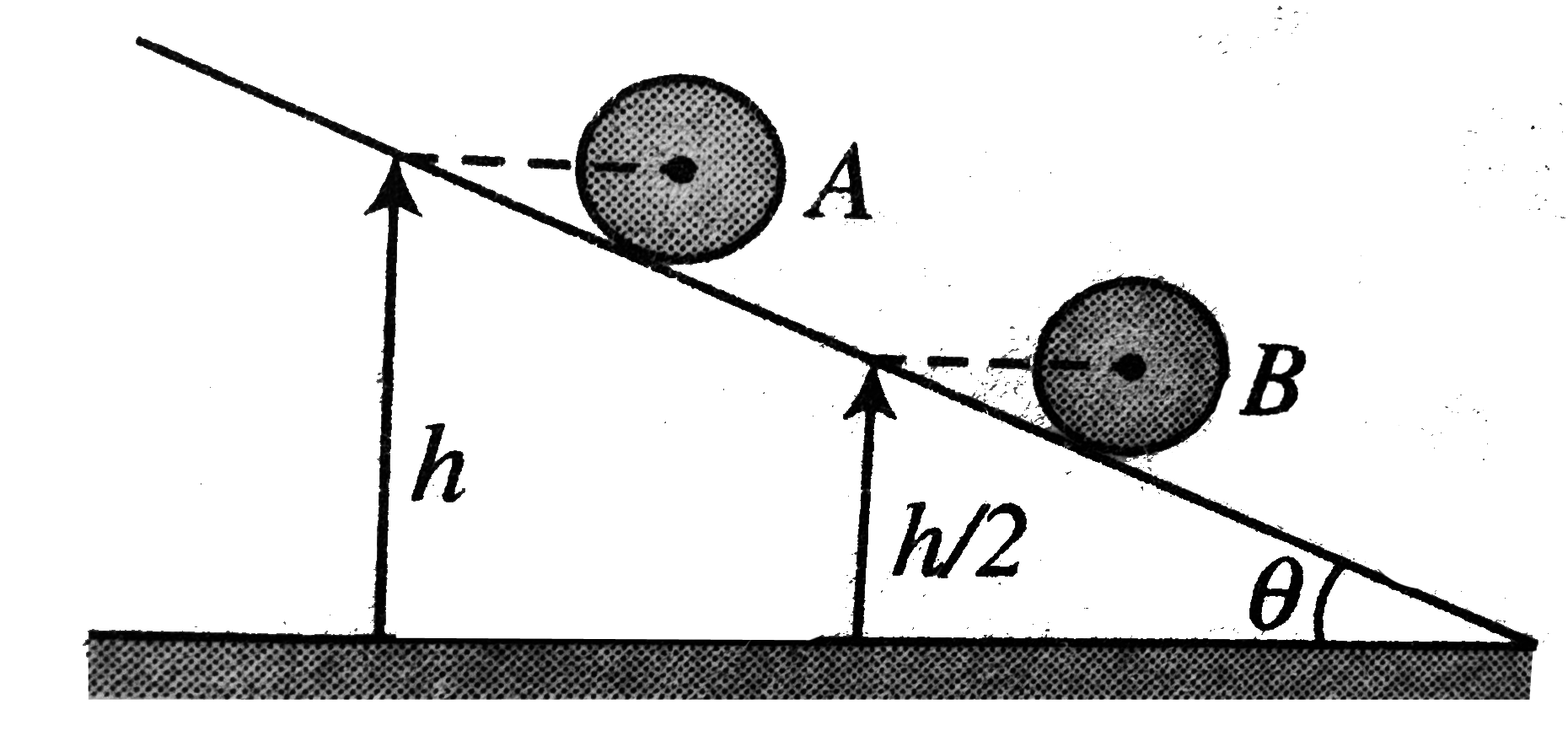
A curved suface is shown in figure. The portion BCD is free of friction. There are three spherical balls of identical radii and masses. Balls are released from rest one by one from A which is at a slightly greater height than C.
Wioth the surface AB, ball 1 has large enough friction to cause rolling down without slipping, ball 2 has a small friction and ball 3 has a negligible friction.
(a) For which ball is total mechanical energy conserved?
(b) Which ball(s) can reach D?
(c )For ball which do not reach D, which of the balls can reach back A?
1 and 2
1
2
Cannot be predicted
The correct Answer is:C
Step by step video, text & image solution for A curved suface is shown in figure. The portion BCD is free of friction. There are three spherical balls of identical radii and masses. Balls are released from rest one by one from A which is at a slightly greater height than C. Wioth the surface AB, ball 1 has large enough friction to cause rolling down without slipping, ball 2 has a small friction and ball 3 has a negligible friction. (a) For which ball is total mechanical energy conserved? (b) Which ball(s) can reach D? (c )For ball which do not reach D, which of the balls can reach back A? by Physics experts to help you in doubts & scoring excellent marks in Class 11 exams.
Topper's Solved these Questions
- BOOK - NCERT FINGERTPS ENGLISHCHAPTER - WORK , ENERGY AND POWEREXERCISE - NCERT18videos
WORK , ENERGY AND POWER
- BOOK - NCERT FINGERTPS ENGLISHCHAPTER - WORK , ENERGY AND POWEREXERCISE - ASSERTION & REASON15videos
WORK , ENERGY AND POWER
- BOOK - NCERT FINGERTPS ENGLISHCHAPTER - WAVESEXERCISE - Assertion And Reason15videos
WAVES
Similar Questions
A spherical ball of lead has been melted and made in to smaller balls of half the radius of the original one. How many balls can be made?
View SolutionThree metallic spherical balls of radii 3 cm, 4 cm and 5 cm are melted and recast into a big spherical ball. Find the radius of this big ball.
View Solution(a) Write rules of friction. Friction force decreases in ball bearings because balls are spherical. Does it mean frictional force depend upon area ? Explain.
View SolutionA spherical ball of radius 3 cm is melted and recast into three spherical balls. The radii of two of the balls are 1.5 cm and 2 cm. Find the diameter of the third ball.
View SolutionFriction is lessened in ball-and-socket joint by
View SolutionA solid spherical ball is rolling without slipping down an inclined plane. The fraction of its total kinetic energy associated with rotation is
View SolutionA solid spherical ball of iron with radius 6 cm is melted and recase tin to three solid spherical balls . The radii of the two of the balls are 3 cm and 4 cm respectively determine the diameter of the third ball.
View SolutionA solid sphere is released from rest from the top of a curved surface as shown in figure. Half portion of surface is rough and another half is smooth. If sphere is released from rough side, then the maximum height attained by it on smooth side is (Rough surface has sufficient friction to roll the body)
View SolutionTwo identical uniform solid spherical balls A and B of mass m each are placed on a the fixed wedge as shown in figure. Ball B is kept at rest and it is released just before two balls collides. Ball A rolls down without slipping on inclined plane and collide elastically with ball B. The kinetic energy of ball A just after the collision with ball B is:
 View Solution
View SolutionA spherical ball of iron has been melted and made into smaller balls. If the radius of each smaller ball is one-fourth of the radius of the original one, how many such balls can be made?
View Solution
